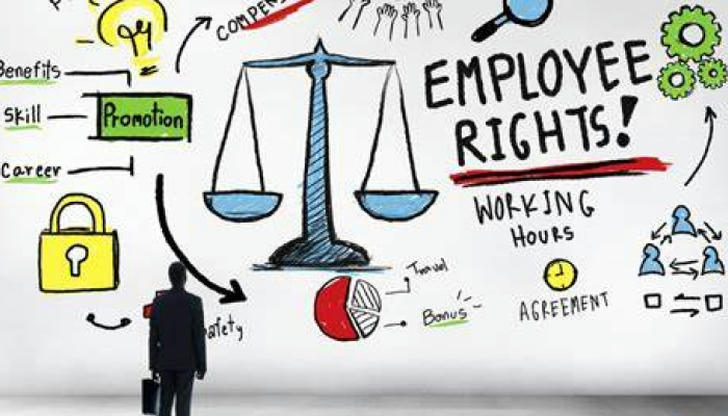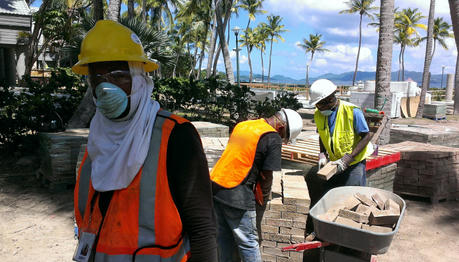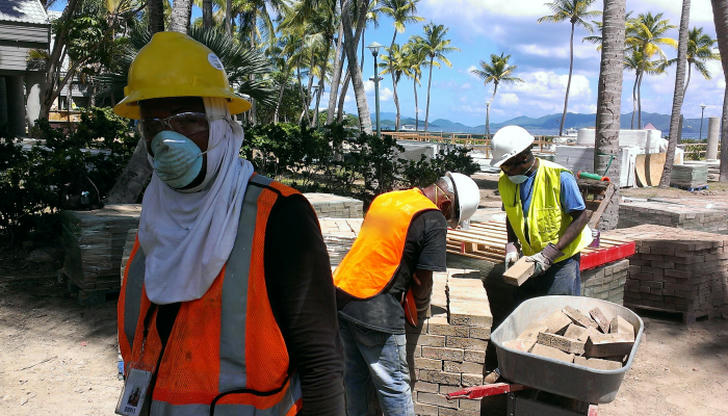-
 Education
EducationThe Challenges and Future of University Education: Adapting to the Changing Landscape

University education has long been regarded as the cornerstone of academic achievement, career success, and personal development. As society becomes increasingly globalized, technologically advanced, and interconnected, the importance of higher education has grown. Universities are not just institutions for learning; they are spaces where ideas are exchanged, where research shapes the future, and where young minds are trained to tackle the world's most pressing problems. However, as universities adapt to the challenges of the 21st century, they face significant questions about their role, structure, and impact on students and society. These challenges encompass issues such as the rising cost of education, the relevance of traditional degree programs in a rapidly evolving job market, and the impact of technology on teaching and learning. This article explores the major challenges facing university education today and examines potential solutions and innovations that could help shape the future of higher education.
-
 Education
EducationThe Evolution and Impact of Modern Early Childhood Education

Early childhood education (ECE) refers to the period of learning that occurs from birth to age eight, a time when a child’s brain develops at an extraordinary rate. The quality of education provided during these formative years has a significant impact on a child’s long-term academic, social, and emotional development. Over the years, the approach to ECE has transformed dramatically, evolving from traditional, teacher-centered methods to more innovative and child-centered pedagogies. Today, modern ECE emphasizes a holistic approach that caters to cognitive, social, emotional, and physical development, preparing children not just for school, but for life. The aim of this essay is to analyze the key features, trends, and theories of modern early childhood education. It will explore how this field has evolved, the factors influencing its growth, and the challenges that continue to shape early education systems worldwide. Additionally, the essay will examine the positive impact of modern ECE on children’s development and society as a whole.
-
 Education
EducationThe Evolution of Education in the 21st Century: Challenges, Innovations, and Opportunities

Education is the cornerstone of human development and societal progress. It shapes individuals, communities, and nations, providing the necessary tools for both personal growth and collective advancement. Over the past few decades, the world has witnessed a profound transformation in education, driven by technological advances, societal shifts, and new educational philosophies. In the 21st century, the landscape of education is evolving at an unprecedented rate. This article delves into the key challenges, innovations, and opportunities that have emerged in the world of education today.
-
 Education
EducationThe Rise of Online Education: Transforming the Learning Experience

In recent decades, online education has become one of the most significant developments in the field of learning and teaching. The traditional education system, once dominated by brick-and-mortar institutions, has undergone a radical transformation with the rise of digital platforms, virtual classrooms, and online learning programs. Whether due to the demands of globalization, technological advances, or the recent global pandemic, online education has become a major force in shaping how students learn, when they learn, and where they learn. This shift is not just a trend but a paradigm shift that has made education more accessible, flexible, and personalized. With the ability to study from anywhere in the world, at any time, and on any device, online education offers unprecedented opportunities for learners and institutions alike. However, despite its advantages, online education also faces unique challenges and criticisms that need to be addressed. This essay will explore the rise of online education, its benefits and challenges, the role of technology, and its future prospects. Through examining various real-world examples, this paper will provide an in-depth understanding of how online education is reshaping the landscape of learning.
-
 Education
EducationUnderstanding Adult Education Courses

Adult education plays a crucial role in lifelong learning, empowering individuals with the knowledge and skills needed to navigate changing careers, personal growth, and societal needs. Unlike traditional K-12 and higher education, adult education focuses on adults who are either seeking to advance their careers, change professions, or engage in personal development. With the rapid advancements in technology, globalization, and shifting workforce dynamics, adult education has become an essential component of societal progress. The increasing demand for flexibility in learning, a diverse range of learning needs, and the necessity for new skills in the workforce are driving the growth of adult education programs. These courses cover a wide array of subjects, including literacy and numeracy, job-specific skills, personal development, and even academic qualifications. This essay explores the importance, types, benefits, and challenges of adult education courses, and presents real-world examples of adult education initiatives that have positively impacted individuals and communities.
-
 Education
EducationUnderstanding Data Analysis Courses

In today’s rapidly evolving world, data is the new gold. From healthcare to finance, marketing to education, data plays a crucial role in shaping decisions and strategies. However, raw data alone is not valuable; it is through data analysis that organizations can gain insights, make informed decisions, and achieve operational excellence. Data analysis is a multifaceted field that involves collecting, cleaning, processing, and interpreting data to uncover meaningful patterns and trends. To succeed in this data-driven world, professionals and organizations alike need to equip themselves with data analysis skills. One of the most effective ways to acquire these skills is through formal education in the form of data analysis courses. These courses offer foundational knowledge, hands-on experience, and the technical tools needed to navigate the complex landscape of data. In this article, we will explore what data analysis courses encompass, the skills they impart, and why they are critical in the current job market. Additionally, we will delve into the different types of data analysis courses available and what learners can expect from them.
-
 Employment
EmploymentEarly Retirement for Special Occupations: A Necessary Consideration

In many countries, the concept of early retirement is often seen as a luxury afforded to those who have accumulated enough wealth or saved extensively during their working years. However, for individuals working in certain high-risk or physically demanding professions, early retirement is not only a luxury, but a necessity. The conditions of their work environments often lead to physical and mental tolls that make it impractical, and at times impossible, for them to continue working until the traditional retirement age. This article will explore the idea of early retirement for special occupations, the factors that influence this decision, and the challenges and benefits it brings.
-
 Employment
EmploymentGlobal Labor Rights and the Responsibility of Multinational Corporations

In the era of globalization, multinational corporations (MNCs) have become powerful actors in the global economy. Operating in numerous countries and with vast supply chains that span continents, MNCs have the ability to influence labor markets, economies, and even local cultures. While these companies can contribute to economic development, they also face increasing scrutiny regarding their treatment of workers, particularly in developing countries where labor laws may be weaker, and enforcement is often lax. Labor rights are fundamental human rights that include fair wages, safe working conditions, the right to form unions, and protection from exploitation. The question of how multinational corporations uphold labor rights in their global operations and supply chains is a pressing issue in the modern business and human rights landscape. This article examines the responsibilities of multinational corporations in respecting global labor rights, the challenges they face in doing so, and the role of international organizations and governments in enforcing labor standards.
-
 Employment
EmploymentLabor Shortage and Migrant Workers: Challenges and Opportunities

The global labor market is experiencing significant shifts in recent years, with labor shortages becoming a prominent issue in many countries, particularly in advanced economies. These shortages are driven by a combination of factors, including demographic changes, skills gaps, and shifts in the nature of work. One of the key responses to these labor shortages has been the increasing reliance on migrant workers. Migrants have long been a crucial part of the workforce in various sectors, from agriculture to healthcare and construction. However, the complex interplay between labor shortages and migrant labor raises important questions about immigration policies, workers’ rights, and the future of the global workforce. This article explores the challenges and opportunities associated with labor shortages and the reliance on migrant workers, focusing on the economic, social, and policy implications.
-
 Employment
EmploymentThe Political Participation of the Working Class and Its Role in Social Change

The political participation of the working class has been a cornerstone of social and economic transformation throughout history. From the industrial revolutions to the rise of labor unions and workers' rights movements, the working class has played a significant role in shaping political landscapes and driving social change. Their collective action has resulted in improved labor conditions, better wages, and expanded rights, while also challenging entrenched power structures that have traditionally benefited elites. In this article, we explore the history, importance, and implications of working-class political participation, how it has evolved, and the current challenges and opportunities it faces.




